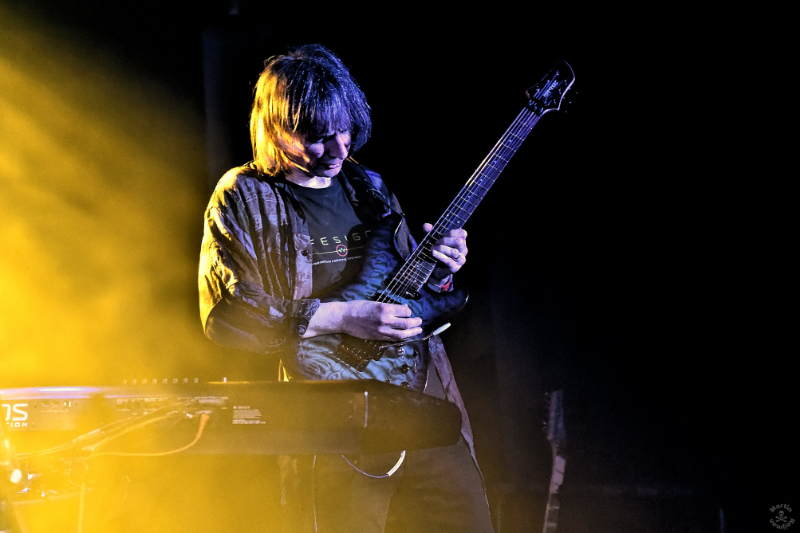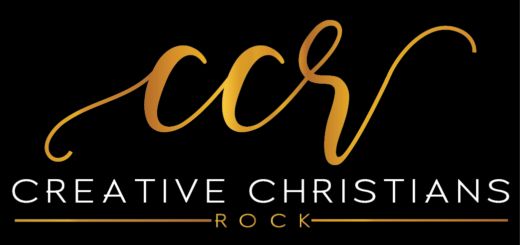Jeff Ali’s Musical Tapestries
I prefer to give the listener a chance to really get into a certain space before throwing something new at them. Maybe now more than ever people need music that doesn’t interrupt them with something new every few bars, that gives their minds a chance to stretch for themselves.”
Jeff Ali reached out to me after watching a video of an ambient music piece performed by Bill Vencil and me at Chords of Orion. He forwarded a link to some of his work. I was immediately hooked and curious to learn more about him.
 Based in Los Angeles, CA, Jeff composes music for film, theater and advertising, and often performs live. He scores music for movies and live production. His movie credits include Letting Go (2006), Assassins’ Code (2011) and Dreamers (2010).
Based in Los Angeles, CA, Jeff composes music for film, theater and advertising, and often performs live. He scores music for movies and live production. His movie credits include Letting Go (2006), Assassins’ Code (2011) and Dreamers (2010).
Jeff describes himself as a “live-loop ambient artist, multi-instrumentalist who works with creatives across several mediums weaving a tapestry of sound and music into the fabric of each unique creation I participate in.”
I recently caught up with him as he was finishing sound design for a live musical. He was gracious in taking time to share his thoughts on composing, performing, and finding his voice as a creative.
Visit Jeff at bandcamp, IMDB, facebook, LinkedIn, and Twitter.
Jim Wall Coaching (JWC): Are there differences between scoring for film and scoring for live production? If so, what are those differences?
Jeff: The difference is huge between scoring for a picture and scoring for live production, but the same challenges are there: to create music that will support the scene, support the characters, and help move the story forward. The hardest part is creating cues that can mix together in a live context, so when the mood shifts, the music shifts – a new cue. Same as with film, but in film you get the luxury of seeing how it all plays out frame by frame, and you can make small adjustments to continue to refine the sound to the picture. In live theater, you don’t get as many opportunities to do the refining.
JWC: Which do you prefer, doing all the orchestration in-house electronically or recording of a group of musicians live?
Jeff: I always prefer recording live musicians but there are some sounds that you can only get from samples. For example, a piece I’m composing right now has a choir, and I’m using a very expressive, realistic choir sample library for one part. But for another part I’m using a different patch, and the arrangement isn’t something a person would really sing. It’s arpeggios, and it’s a fairly quick pace, so it’s not natural. But the feeling it evokes by hearing the human voice is what I was going after, so maybe I’ll say I’m a fan of the hybrid approach. I do use sampled orchestra and layer live strings and wind instruments to get more feel. Mostly, why I like live musicians is that they interpret my music in ways I may not have even considered, or at least in ways I wouldn’t have notated. I tend to orchestrate my music very simply and, in the session, give the musicians a lot of freedom to decide the specific articulations that sound best for the mood. I know when I want legato or pizzicato, but the other dynamics and accents I leave to the musicians. My recording sessions are often very short sessions with a lot to get done, but I aim for a relaxed feel and treat the studio as an extension and continuation of the composing process, not the end. That also continues when we get into mixing.
The musical I’m currently doing sound design for (Strength of This Nation) ended up including several pieces of music that I composed for the show. One of the pieces opens the play and is synced with a video that introduces the main character while still a young child. That piece uses prerecorded live instruments, like much film work I do. There’s a piece later that spans several scenes. It was composed using my live looping set up that normally is used for live performances. Somehow that mood just hit the director and he requested that I have the cue continue through the scenes – serendipitously I suppose. I had actually recorded not only enough for the one scene but enough for over 10 minutes. It’s a lot of fun seeing how all these little synchronistic things end up aligning.
JWC: Who are your influences from the classical era?
Jeff: From classical I’d say Mozart, Beethoven, Tchaikovsky, Hayden, Vivaldi. These are all composers whose music I either played as a child or heard at many concerts growing up. My parents and I went to classical concerts on a fairly regular basis and these are the composers I remember being featured the most.
JWC: What’s your greater strength, composing or performing?
Jeff: I feel pretty equally at home whether I’m composing or performing. I do play different music live from what I compose, or I should say I compose music that I wouldn’t perform live. So from a technical point of view, my range of expressing in different genres is greater when it comes to composing, but I think it has more to do with what I enjoy most when performing. I actually compose music when I perform, too. I use a live looping setup, and generally it’s in the genre of ambient music with elements of world music inside.
JWC: What’s your favorite instrument to play?
Jeff: I love playing the cello. I’m not really good at it, but there’s something so satisfying about drawing the bow across the strings. I’m probably happiest playing my main instrument, electric guitar. I have more to say on guitar.
JWC: Which movie(s) would you watch tonight, just to hear the soundtrack again?
Jeff: The Fountain. I love Clint Mansell and Kronos Quartet. I recently saw Wind River, and I will watch it again for the story but also for the score; it’s a really lovely score. Somewhat minimalist.
JWC: You mentioned in a Facebook post that you were testing out a couple of platforms, trying to decide which is the best way to deliver music. Have you drawn any conclusions on that?
Jeff: I am currently self distributing most of my music works via jeffali.com using the bandcamp music platform. When I work with other people as a producer or session player, they usually are with a label, so they handle that aspect. Music I’ve worked on is out there – iTunes, Spotify etc. I have such a huge backlog of music I need to get mixed/mastered and posted that I found bandcamp’s platform to be the easiest path between music being on my computer and the music getting onto my audience’s computer, phone, tablet, etc.
JWC: Each of your compositions stays true to itself – once you start a musical theme, you stay on it and explore it. Is this something that comes naturally to you? In what ways are you purposefully disciplined in how you approach composition?
Jeff: Thanks for noticing that. I’ll take that as a compliment. I don’t feel it has to do with discipline but maybe in a roundabout way, it’s an aspect of my meditative, contemplative approach to things. I don’t like to rush to new ideas; I prefer to give the listener a chance to really get into a certain space before throwing something new at them. Maybe now more than ever people need music that doesn’t interrupt them with something new every few bars, that gives their minds a chance to stretch for themselves.
JWC: What advice would you have for anyone looking to create their own voice as a composer?
Jeff: If I have my own voice as a composer, it surely comes from using it. I think the more you write, the more you make an effort to compose outside your comfort zone, and the more you compose within your comfort zone are all crucial elements. I’ve been a composer since about age 7 or 8 when I wrote my first piece of music: a duet for flute, performed on recorders. So I’ve had a lifetime to make mistakes and try to come up with ideas.
JWC: If you weren’t a composer, you’d be a ________?
Jeff: As difficult as it is to imagine not being a composer, if I weren’t a composer, I’d most likely be a filmmaker. If I had to change careers right now I might delve into computer programming and teach the computer how to compose music, in my style of course.





